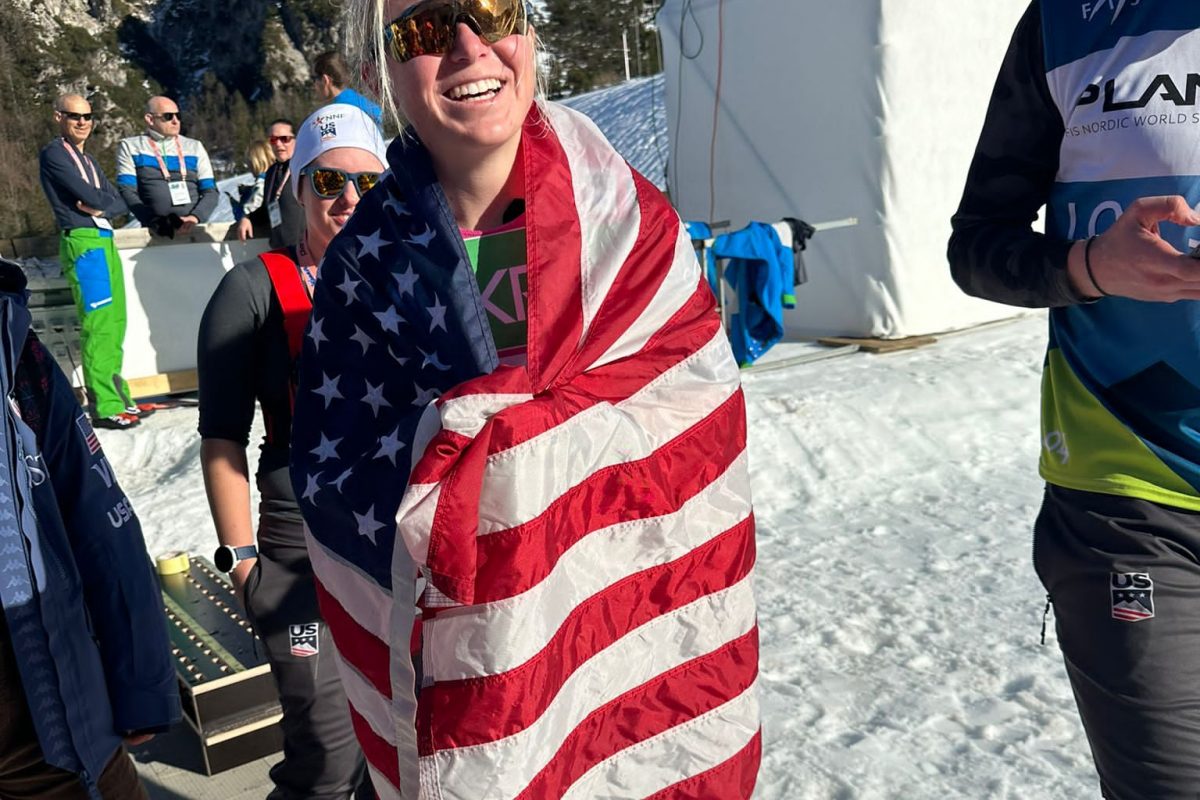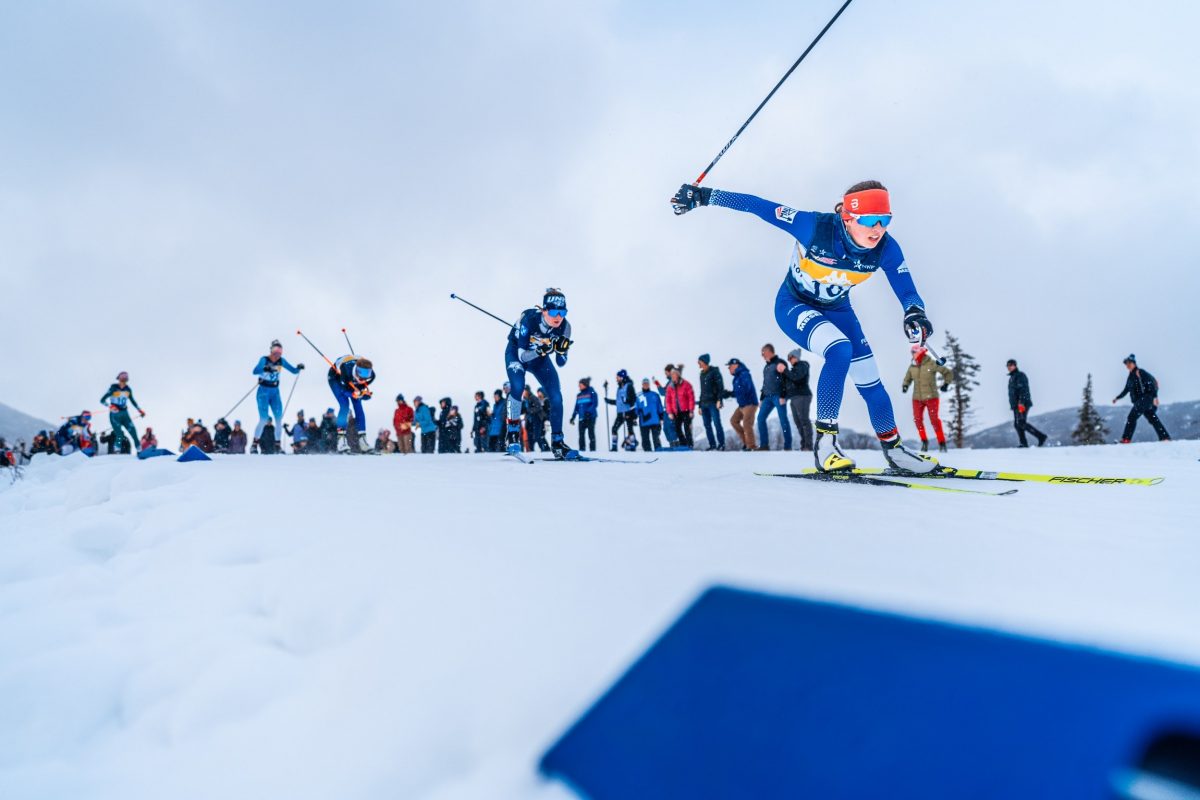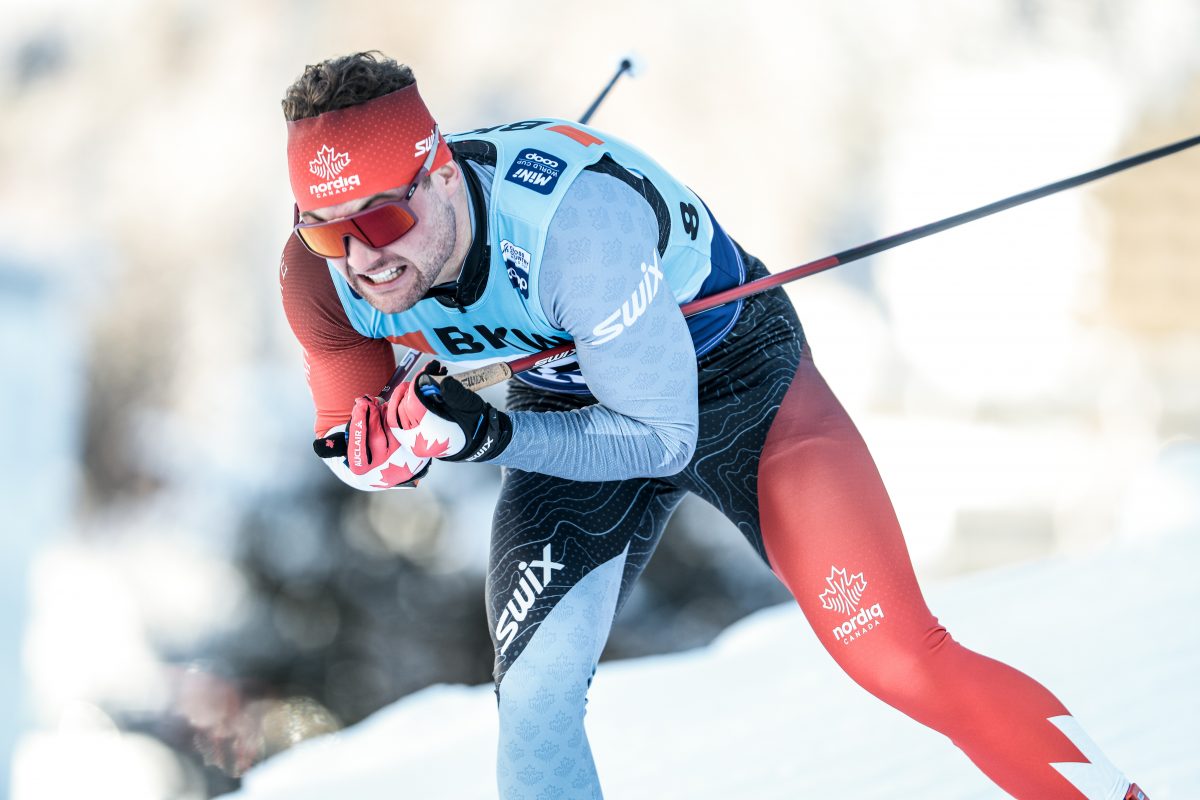
How fast is Maya MacIsaac-Jones?
At a recent NorAm sprint in Rossland, British Columbia, the Albertan had the fastest qualifying time of any junior, covering the course more than eight seconds faster than any of her competitors. She went on to win the junior race, despite the fact that she’s only sixteen – three years younger than the other podium finishers.
And if that isn’t impressive enough, MacIsaac-Jones’ time in the qualifier would have put her seventh in the senior women’s race, sandwiched between 23-year-old Jennie Bender of CXC and 24-year-old Kate Brennan of the Alberta World Cup Academy.
For a skier like MacIsaac-Jones, it’s almost a shame that Canadian race protocols pull junior racers from the senior heats, even if they’re fast enough to compete, and relegate them to a separate race.
Luckily, the Athabasca, Alberta native isn’t lacking for opportunities to push herself. She regularly competes as a senior in distance races, where officials don’t kick here out – at Canadian national championships last year, she finished 11th in the 5 k freestyle.
And soon, she’ll have another chance. MacIsaac-Jones, who is a member of Canada’s junior national team, will represent her country at the inaugural Youth Olympic Games in Innsbruck, Austria in January.
Competing internationally and against much older racers might seem to be a fast track to burnout; in a newspaper interview last year, the then-15-year-old said that she was shooting for 550 hours of training.
But exhaustion doesn’t seem to be a problem for the perky junior, who said in the same interview, “I have so much fun while I’m doing it, and that provides me with plenty of motivation to keep on going!”
FasterSkier interviewed MacIsaac-Jones over e-mail to see how she was preparing for the upcoming Games.
FasterSkier: How long have you been skiing and how did you get started as a kid?
Maya MacIsaac-Jones: I have been skiing since I was 4 years old, when my parents put me on skis at our farm near Athabasca, AB. I skied in the Athabasca Nordic Jackrabbits program for several years. My first race was at the Tawatinaw Loppet, at 5 years old and I have been racing ever since.
FS: What ski club are you a part of now, and how has that community helped you develop as an athlete?
MMJ: I am currently racing with Rocky Mountain Racers, a club based out of Canmore, AB. I have two exceptional coaches, John Jacques and Luke McGurk, who provide me with training plans, camps, technique sessions and race support. Our club has many athletes with whom I train, and who push me to improve. My teammates and the RMR community are extremely supportive and a lot of fun.
I am still involved with my home club, Athabasca Nordic. My daily training is done in Athabasca under the supervision of my parents. I have great support from my family, friends and community.
I would also like to thank my sponsors, Rossignol and One Way for their continued support.
FS: How do you balance skiing with school and your other interests? It takes a lot of time and energy to be a good skier….
MMJ: Balancing school and skiing is sometimes difficult, but if I am efficient with my time I can successfully combine both. Due to training camps and races, I miss a lot of school. However, my teachers have always been very flexible and helpful so I can continue my studies while I am absent.
FS: What have been some of the highlights of your career so far?
MMJ: Racing highlights include a bronze medal in the team relay at the Halifax Canada Winter Games, and medalling twice at Cross-Country Nationals 2011. I enjoy traveling across the country to different races, as well as training at on-snow camps during the summer, in particular at the Haig Glacier.
FS: Have you raced internationally before?
MMJ: No; I am very excited to be able to compare myself to other international skiers my age for the first time!
FS: Have you raced yet this season? How have things started off?
MMJ: So far, I have raced at the Canmore Alberta Cup, the Sovereign Lake NorAm and Rossland NorAm. I am satisfied with my results and I am very happy with the beginning of my racing season. I think that having consistent races these past few weeks has helped me to prepare for the YOG.
FS: Are there any experiences, like competing against older or faster skiers, that you think have prepared you for the Youth Olympic Games?
MMJ: Racing against older and faster skiers has allowed me to learn more about racing strategy and tactics and has motivated me to work harder. RMR has many senior racers with a great deal of race experience such as Andrea Dupont and Dasha Gaiazova; they have helped me to learn a lot about racing and training.
FS: Has it changed your approach to the season to know that you will be on this trip, rather than having to focus on qualifying for it?
MMJ: Yes, it has helped to know that I am on this trip. I do not have to peak for a qualifier; all of my training is designed towards peaking for the YOG. I can use the races at the start of the season as part of my training, so that I can be my fastest in Innsbruck.
FS: Has the recent success of Canadian skiers at the senior level changed your expectations of what you can accomplish? What are your long-term goals?
MMJ: The current success of the Canadian National Team is inspiring. It shows that Canadian skiers are amongst the best in the world. Growing up, Beckie Scott was my hero; she grew up in a small, northern Alberta community and became one of the best cross country skiers in the world. My long term goal is to race on the World Cup circuit with the Canadian National Team.
FS: What are you looking forward to most about the Games?
MMJ: I am really looking forward to competing against the best cross-country skiers in the world that are my age, and experiencing racing in Europe. I am also looking forward to traveling to another country and experiencing a different culture, along with my teammates and friends!
This is the ninth in a series of interviews with athletes who will be competing at the first-ever winter Youth Olympic Games in Innsbruck, Austria this winter. The series began with interviews of U.S. biathletes Sean Doherty, Anna Kubek, Nick Proell, and Aleksandra Zakrzewska; it continued with Canadian biathletes Danielle Vrielink, Aidan Millar, and Stuart Harden, then with U.S. skiers Paddy Caldwell and Heather Mooney and with Canadian skier Matt Saurette.



